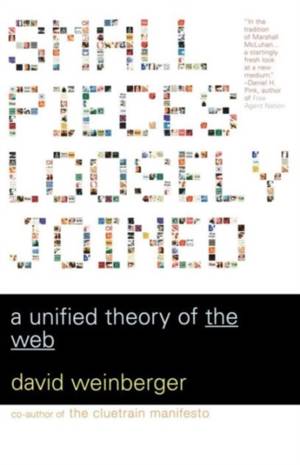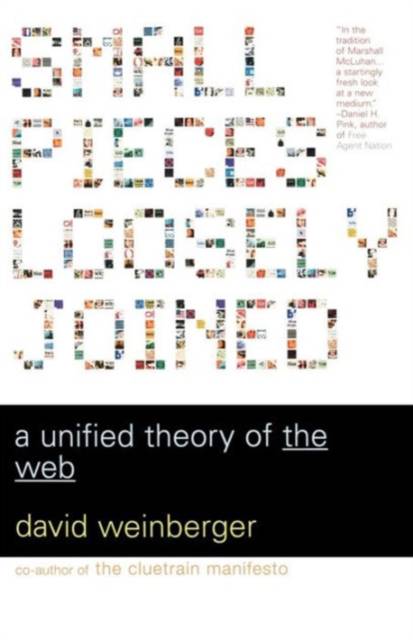
- Retrait gratuit dans votre magasin Club
- 7.000.000 titres dans notre catalogue
- Payer en toute sécurité
- Toujours un magasin près de chez vous
- Retrait gratuit dans votre magasin Club
- 7.000.0000 titres dans notre catalogue
- Payer en toute sécurité
- Toujours un magasin près de chez vous
Description
In this insightful social commentary, David Weinberger goes beyond misdirected hype to reveal what is truly revolutionary about the Web. Just as Marshall McLuhan forever altered our view of broadcast media, Weinberger shows that the Web is transforming not only social institutions but also bedrock concepts of our world such as space, time, self, knowledge-even reality itself. Through stories of life on the Web, a unique take on Web sites, and a pervasive sense of humor, Weinberger is the first to put the Web into the social and intellectual context we need to begin assessing its true impact on our lives. The irony, according to Weinberger, is that this seemingly weird new technology is more in tune with our authentic selves than is the modern world. Funny, provocative, and ultimately hopeful, Small Pieces Loosely Joined makes us look at the Web as never before.
Spécifications
Parties prenantes
- Auteur(s) :
- Editeur:
Contenu
- Nombre de pages :
- 240
- Langue:
- Anglais
Caractéristiques
- EAN:
- 9780738208503
- Date de parution :
- 01-05-03
- Format:
- Livre broché
- Format numérique:
- Trade paperback (VS)
- Dimensions :
- 163 mm x 206 mm
- Poids :
- 272 g

Les avis
Nous publions uniquement les avis qui respectent les conditions requises. Consultez nos conditions pour les avis.






